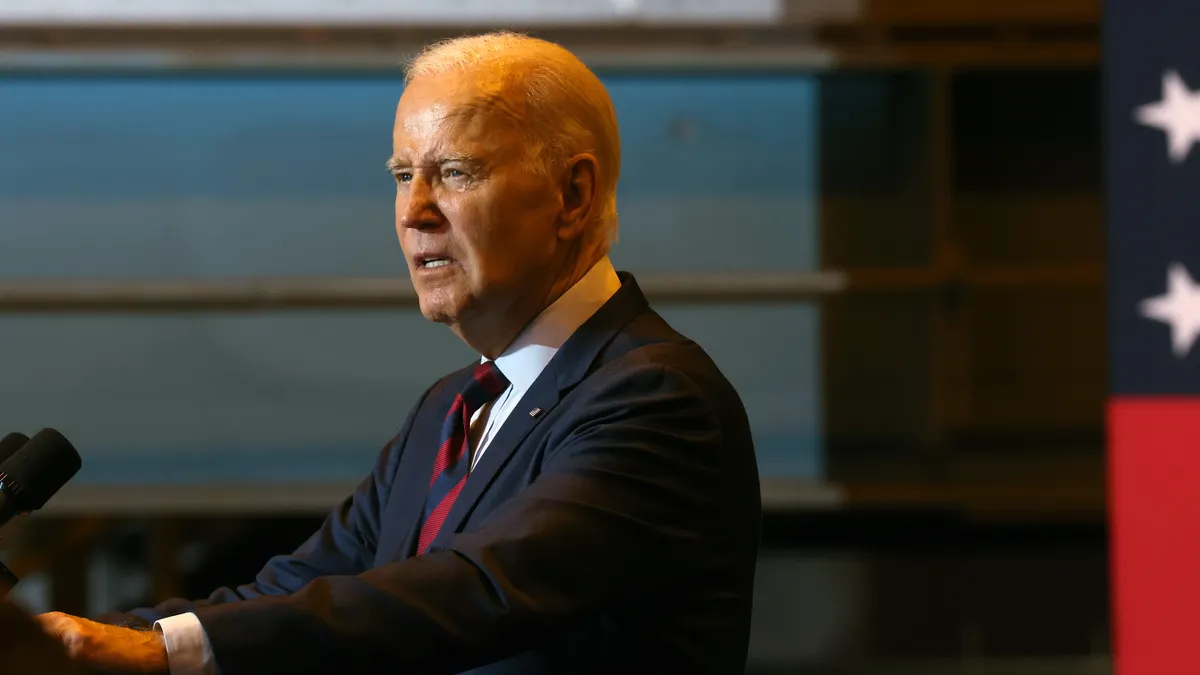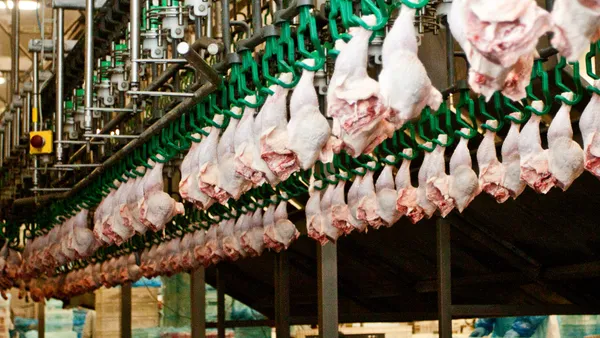Dive Brief:
- President Joe Biden would veto a Republican-led agriculture spending bill if presented with it, according to a White House statement Monday.
- The House measure would slash spending for the U.S. Department of Agriculture and related agencies, cutting down programs related to nutrition and climate change, the White House said. It would also prohibit the administration from enacting rules to bolster competition in the meat and poultry industries.
- The Biden administration said the cuts go too far, especially because Democrats agreed to cut spending as part of a compromise to raise the debt limit in May. The House Rules committee is scheduled on Wednesday to consider whether to send the agriculture appropriations bill to the floor for a full vote.
Dive Insight:
The White House warned that Republicans' spending bill would lead to "deep cuts" to critical food assistance programs and claw back some of the president's major initiatives around competition and climate change.
The bill would make major cuts to fruit and vegetable benefits for more than 5 million participants of the Special Supplemental Nutrition Program for Women, Infants and Children, according to the National WIC Association. It also reduces funding to administrate nutrition programs, which could lead to waiting lists for the first time in more than two decades.
Beyond cuts to nutrition programs, the bill would eliminate climate change research funding at the USDA and rescind $1.5 billion in programs meant to encourage farmers and rural communities to transition to renewable energy. It would also cut $2.2 billion in assistance for farmers who faced discrimination, and additionally make it harder for distressed farm loan borrowers to access funding.
In its statement of administrative policy, the White House said Republicans' proposal would "result in unacceptable harm to clean energy and to energy efficiency initiatives that lower energy costs and critical investments in rural America."
Food and farming groups have blasted the proposal, particularly a section that prevents the USDA from strengthening the Packers and Stockyards Act. The agency was set to introduce additional rules this year to update the 1921 antitrust law, which is meant to protect farmers from anti-competitive behavior.
Rising political tensions over food and nutrition spending are likely to spill over into negotiations for this year's farm bill, one of the most consequential legislative packages for the agriculture industry. Debates over spending will make it unlikely that the 2023 Farm Bill will include additional funding or major changes to current farm programs, Senate Majority Leader Mitch McConnell said in June











